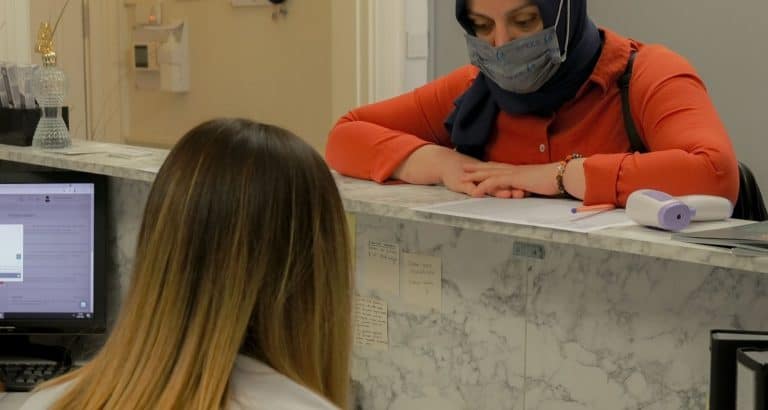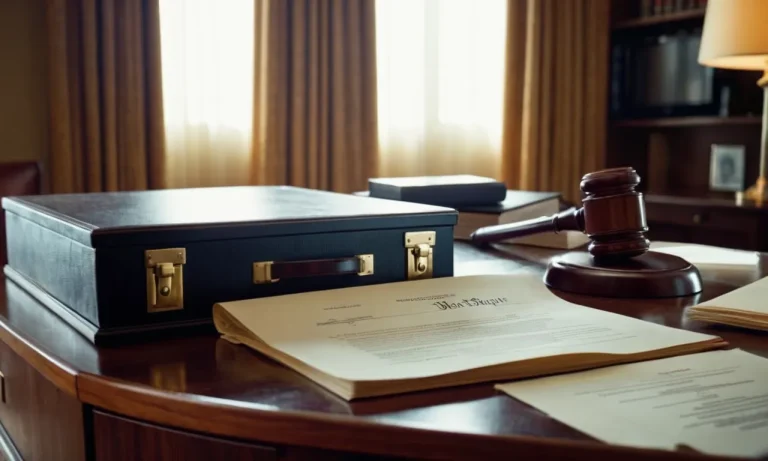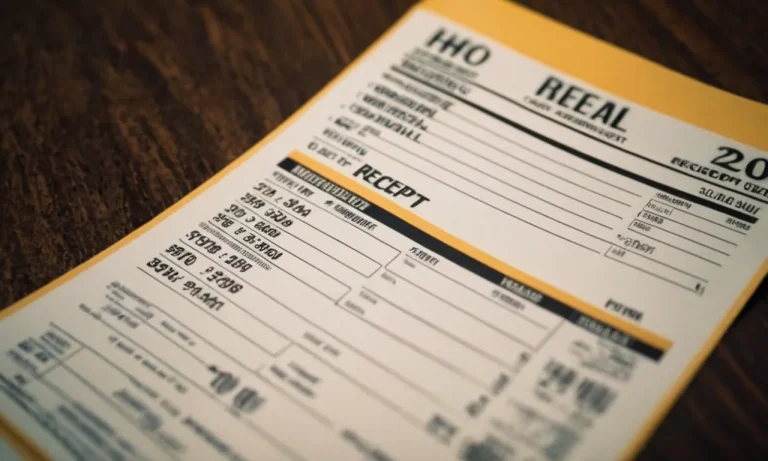Can Someone Else Check Into a Hotel for You? A Comprehensive Guide
Imagine this scenario: You’re running late for an important business trip, and the thought of checking into a hotel after a long day of travel seems daunting. Or perhaps you’re planning a surprise getaway for a loved one, and you want to ensure everything is ready before their arrival.
In situations like these, the question arises: Can someone else check into a hotel for you?
If you’re short on time, here’s a quick answer to your question: Yes, it is generally possible for someone else to check into a hotel on your behalf, provided they have the necessary information and documentation.
In this comprehensive article, we’ll delve into the details of having someone else check into a hotel for you. We’ll explore the requirements, procedures, and potential challenges involved in this process.
Whether you’re a frequent traveler, planning a special occasion, or simply seeking convenience, this guide will equip you with the knowledge you need to navigate this scenario smoothly.
Understanding Hotel Check-In Policies
Planning a trip and booking accommodations can be an exciting endeavor, but it’s crucial to understand the hotel’s check-in policies to ensure a smooth and stress-free experience.
While it may seem like a straightforward process, there can be nuances and exceptions that you should be aware of, especially when it comes to having someone else check in on your behalf.
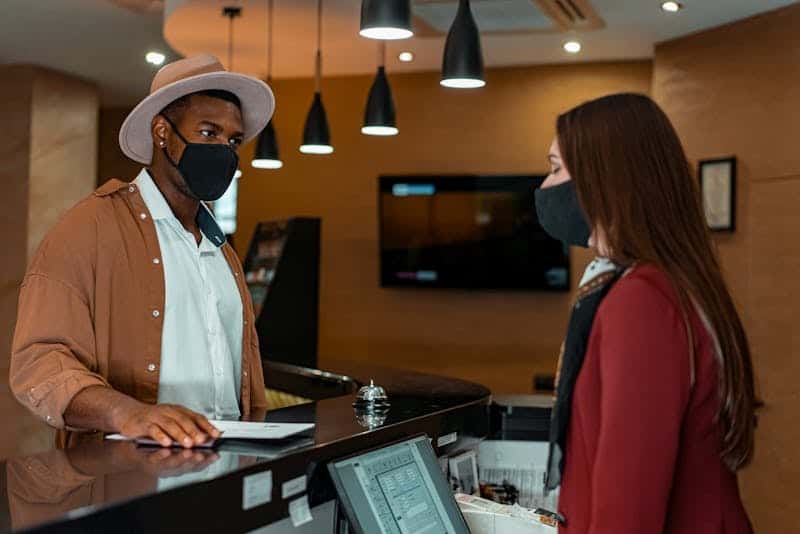
Hotel policies regarding third-party check-ins
Many hotels have strict policies in place regarding third-party check-ins, primarily for security and liability reasons.
In most cases, hotels require the person whose name is on the reservation to be present during check-in and provide a valid form of identification. This is a standard practice to prevent unauthorized access and potential fraud.
However, some hotels may allow a third party to check in on your behalf if you provide them with proper authorization and documentation.
This could include a signed letter or email from you, along with a copy of your ID and credit card information. The third party may also need to present their own ID during check-in.
Exceptions and special circumstances
While hotels generally have strict policies in place, they may make exceptions or accommodations in certain situations.
For instance, if you’re part of a larger group or traveling with family, some hotels may allow one person to check in on behalf of the entire party. This is often done to streamline the process and avoid long lines at the front desk.
Additionally, corporate accounts or frequent travelers with loyalty programs may have more flexibility when it comes to third-party check-ins. Hotels may be more lenient with their policies for valued customers or those with special arrangements.
It’s also worth noting that hotels may have different policies for third-party check-ins depending on the country or region you’re visiting. Cultural norms and local laws can influence these policies, so it’s always a good idea to research and understand the specific requirements of your destination.
Importance of clear communication
Regardless of the hotel’s policies, clear communication is key when it comes to third-party check-ins. If you plan to have someone else check in on your behalf, it’s essential to inform the hotel in advance and provide all necessary details and documentation.
Don’t be afraid to ask questions and clarify any uncertainties you may have about the process. A little extra effort in communicating your needs can go a long way in ensuring a smooth and hassle-free check-in experience for both you and the hotel staff.
By understanding hotel check-in policies, being aware of potential exceptions, and maintaining clear communication, you can navigate the process of having someone else check into a hotel for you with confidence and peace of mind.
Required Information and Documentation
When someone else is checking into a hotel on your behalf, there are certain details and documents that the hotel will require. This is to ensure the security and smooth operation of the establishment, as well as to comply with various legal and regulatory requirements.
Here’s a breakdown of the key information and documentation needed:
Guest’s personal and contact details
- Full name of the person who will be staying at the hotel
- Contact information, including phone number and email address
- Home address
These details are crucial for the hotel to maintain accurate records and communicate with the guest if necessary.
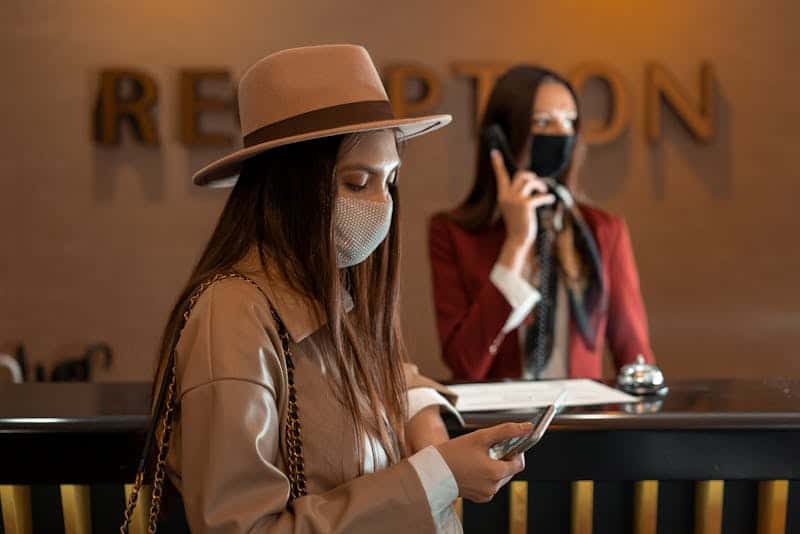
Reservation confirmation and payment information
The third party checking in on your behalf will need to provide the following details to verify the reservation and secure payment.
- Reservation confirmation number or booking reference
- Payment method (credit card, debit card, or other accepted forms)
- Billing address associated with the payment method
It’s important to note that many hotels have strict policies about accepting payments from someone other than the registered guest, so it’s best to clarify this in advance. According to a study by Statista, around 75% of hotel bookings are made online, which often requires providing payment information upfront.
Identification documents for the third party
Hotels typically require the person checking in to present a valid photo ID for security purposes.
- Government-issued photo ID (driver’s license, passport, etc.)
- Proof of authorization from the registered guest (email, letter, etc.)
Additionally, they may ask for proof that the registered guest has authorized this third party to check in on their behalf. This helps prevent unauthorized access and potential fraud.
By providing all the necessary information and documentation, the check-in process can be smoother and more efficient for both the hotel staff and the third party. It’s always a good idea to check with the specific hotel in advance to ensure you have everything required and to avoid any potential hiccups or delays.
Authorizing a Third Party for Check-In
In today’s fast-paced world, unexpected situations can arise that may prevent you from checking into a hotel yourself. Whether it’s a last-minute business trip, a family emergency, or simply a desire for convenience, authorizing a third party to check in on your behalf can be a lifesaver.
Hotels understand the need for flexibility and have established various methods to accommodate this requirement.
Written authorization from the guest
One of the most common and widely accepted methods of authorizing a third party for check-in is by providing written authorization.
This typically involves sending an email or letter to the hotel, specifying the name of the person who will be checking in on your behalf, along with your confirmation number and arrival/departure dates. The hotel may also request a copy of your identification and credit card information for verification purposes.
Verbal authorization over the phone
If time is of the essence, many hotels allow guests to provide verbal authorization over the phone. This process involves calling the hotel’s front desk or reservations department and providing your confirmation details, along with the name of the person who will be checking in for you.
The hotel staff will typically ask a series of security questions to verify your identity and ensure the legitimacy of the request. It’s important to note that some hotels may require additional documentation, such as a credit card authorization form, to be faxed or emailed before the check-in can be completed.

Online authorization through hotel websites or apps
In the age of digital convenience, an increasing number of hotels are offering online authorization options through their websites or mobile apps. This feature allows guests to securely input the details of their authorized third party, upload any necessary documentation, and receive confirmation of the authorization.
According to a Statista report, over 60% of hotel guests worldwide prefer mobile check-in apps. This would make it easier for them to authorize a third party from the comfort of your smartphone or computer.
Regardless of the method you choose, it’s crucial to provide accurate and up-to-date information to the hotel to ensure a smooth check-in process for your authorized third party. Additionally, be sure to keep in mind any specific requirements or policies set by the hotel regarding third-party authorizations.
By following the proper procedures, you can have peace of mind knowing that your accommodations are taken care of, even if you can’t be there in person. So, the next time you find yourself in a situation where you need someone else to check into a hotel for you, don’t worry – hotels have got you covered with these convenient options!
Potential Challenges and Solutions
Dealing with strict hotel policies
While it’s generally possible for someone else to check into a hotel on your behalf, it’s crucial to be aware of the hotel’s policies regarding this practice.
Many hotels have strict rules in place to prevent unauthorized access or potential security risks. Many hotels require the guest whose name is on the reservation to be present at check-in. To navigate this challenge, it’s essential to communicate openly with the hotel staff and inquire about their specific policies.
Some hotels may require written authorization or additional identification from the primary guest. Additionally, providing the hotel with the details of the person checking in on your behalf, such as their name and contact information, can help facilitate a smoother process.
Language barriers and communication issues
When someone else is checking into a hotel for you, language barriers and miscommunications can potentially arise, especially in international destinations or hotels with a diverse staff. Many travelers have experienced communication difficulties due to language barriers while traveling.
To overcome this challenge, consider providing the person checking in with a written document outlining your reservation details, preferences, and any special requests. Additionally, you could utilize translation apps or online resources to facilitate clear communication. Don’t be afraid to ask for assistance from hotel staff who speak your language if available. 😊
Ensuring a smooth transition for the guest
When someone else checks into a hotel on your behalf, it’s crucial to ensure a seamless transition for the actual guest (you) upon arrival. This may involve providing the hotel with your estimated arrival time, contact information, and any specific instructions or requests.
Furthermore, consider sharing important details with the person checking in, such as your room preferences, dietary restrictions, or any special accommodations you may require. This will help them communicate your needs effectively to the hotel staff.
Can you imagine the hassle of arriving at a hotel only to find that your preferences weren’t properly conveyed? By taking proactive measures, you can avoid such inconveniences and enjoy a stress-free stay from the moment you arrive.
Tips for a Successful Third-Party Check-In
Advance planning and communication
Allowing someone else to check into a hotel on your behalf requires meticulous planning and clear communication. It’s crucial to inform the hotel staff in advance about your arrangements, as many hotels have strict policies regarding third-party check-ins.
The majority of hotels require prior notification for third-party check-ins. By providing the hotel with the necessary details, such as the name of the person checking in for you and your expected arrival time, you can ensure a smooth and hassle-free process.
Providing clear instructions to the third party
To facilitate a seamless check-in experience, it’s essential to provide the third party with clear and concise instructions. Make sure they have all the relevant information, including your reservation details, contact information, and any specific requests or preferences you may have.
It’s also a good idea to share a copy of your identification document with them, as many hotels require proof of identity during check-in. Here are the important details the third party should know:
- Reservation confirmation number
- Your full name and contact information
- Estimated arrival time
- Any special requests or preferences (room type, floor preference, etc.)
- Copy of your identification document

Following up after check-in for a seamless experience
Once the third party has successfully checked in on your behalf, it’s advisable to follow up with both the hotel and the person who checked in for you. Confirm that everything went smoothly, and address any potential issues or concerns right away.
This proactive approach can help prevent misunderstandings and ensure a comfortable stay from start to finish. Additionally, consider leaving a positive review or feedback for the hotel if the third-party check-in process was handled efficiently, as it can benefit other travelers who may need to utilize this service in the future.
| Tip | Importance |
|---|---|
| Advance planning and communication | 🌟🌟🌟🌟 |
| Providing clear instructions | 🌟🌟🌟🌟🌟 |
| Following up after check-in | 🌟🌟🌟🌟 |
Don’t hesitate to ask the hotel staff for assistance if you have any questions or concerns. They’re there to make your stay as comfortable and enjoyable as possible! 😊
By following these tips, you can ensure a smooth and stress-free third-party check-in experience, allowing you to enjoy your stay without any hiccups. Remember, clear communication, advance planning, and attention to detail are the keys to a successful third-party check-in.
Conclusion
In today’s fast-paced world, the ability to have someone else check into a hotel on your behalf can be a game-changer. Whether you’re pressed for time, planning a surprise, or simply seeking convenience, understanding the process and requirements is crucial.
By following the guidelines outlined in this article, you can navigate the third-party check-in process with confidence. From understanding hotel policies to providing the necessary information and documentation, each step is essential for a smooth and hassle-free experience.
Remember, clear communication, advance planning, and attention to detail are key to ensuring a successful third-party check-in. With the right approach, you can enjoy the convenience of having someone else handle the check-in process, allowing you to focus on the more important aspects of your trip or occasion.


